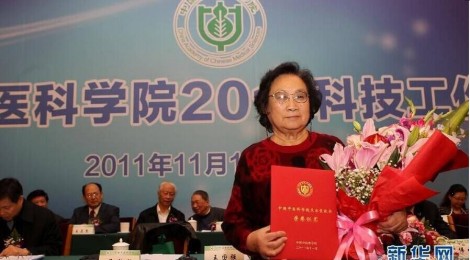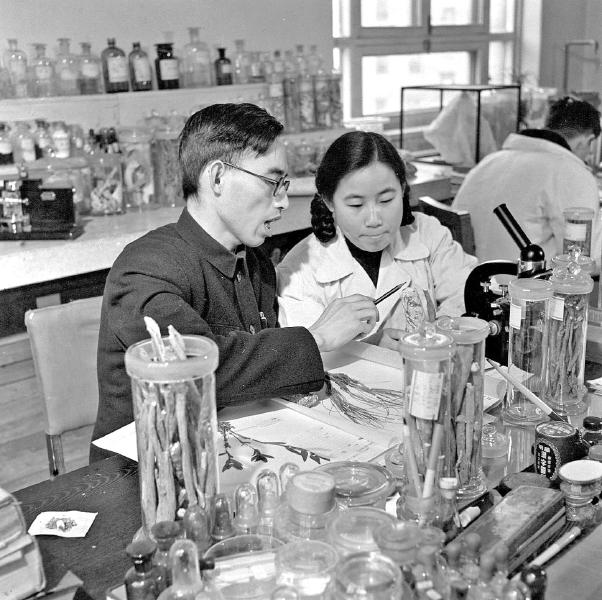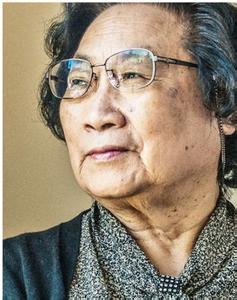
Tu Youyou: the first Chinese to win a Nobel Prize in Science
After the much acclaimed Mo Yan, who won the Nobel prize for literature in 2012, the name of Tu Youyou is going to be echoing in China for a while. She is the first Chinese citizen to win the Nobel prize in the science, thanks to the new anti-malaria drug she developed. As the Nobel Assembly put it, her discovery has “provided humankind with powerful new means to combat these debilitating diseases that affect hundreds of millions of people annually. The consequences in terms of improved human health and reduced suffering are immeasurable.”
The story goes back to the 1960s, when China was in the midst of its Cultural Revolution and North Vietnam – at that time a strong ally of China ¬¬and in war with the United States – was suffering severe losses because of the spread of malaria, which had become resistant to the drug then in use. Chairman Mao decided to set up a secret military mission to help the ally and Project 523 – named after its founding date, May 23, 1967 – was created to find a new therapy.
However, during the revolution’s upheavals, the country’s leading experts on malaria have been labelled as “rightist” and sent to the countryside for re-education, therefore the little-known scientist Tu Youyou, member of the Academy of Traditional Chinese Medicine in Beijing, was appointed to be in charge of the project. She was sent to the tropical island of Hainan, where she studied the disease and its devastating effects on human body. But it was later on, back in Beijing, that she made the actual first steps towards the development of the new drug. While studying ancient Chinese manuscripts, Tu was able to find trace of the substances used by ancient Chinese medicine to fight malaria. In a hundred-year-old-text, The Manual of Clinical Practice and Emergency Remedies by Ge Hong of the East Jin Dynasty, she found mention of sweet wormwood (Artemisia annua) – qinghao in Chinese – being used to treat malaria. Combining Chinese traditional herbal medicine with modern-day science, Tu and her team were able to identify the active compound in the plant that attacked malaria-causing parasites and will later become known as artemisinin. The discovery, which will have saved the life of hundreds of millions of people and that Tu herself called “a gift for the world’s people from traditional Chinese medicine”, has remained unnamed for decades.
Tu, who shares the Nobel for medicine or physiology with two scientists who also developed anti-par asitic drugs, has studied both Western and Chinese medicine, even if, because of historical reasons, she does not hold a doctoral degree, and neither has studied abroad. At 85 years old, Tu is currently a chief researcher and tenured professor at the China Academy of Chinese Medical Sciences in Beijing, even if she has been excluded from the membership of the Chinese Academy of Science, because of her lack of knowledge in Western medicine.
asitic drugs, has studied both Western and Chinese medicine, even if, because of historical reasons, she does not hold a doctoral degree, and neither has studied abroad. At 85 years old, Tu is currently a chief researcher and tenured professor at the China Academy of Chinese Medical Sciences in Beijing, even if she has been excluded from the membership of the Chinese Academy of Science, because of her lack of knowledge in Western medicine.
Beijing has been trying to gain global recognition of the capability to be as innovative as the West in terms of technology and medical sectors; this Nobel prize seems to be the perfect showcase to highlight China’s success in combining Chinese traditional culture with modern relevance. As premier Li noted, “Tu’s winning the prize signifies China’s prosperity and progress in scientific and technological field, marks a great contribution of traditional Chinese medicine to the cause of human health, and showcases China’s growing strengths and rising international standing.”
Some analysts say that the lack of previous Nobel prizes assigned to Chinese people in science is to be explained with the absence of long-term and stable funding for research, necessary condition to develop excellency in research.




